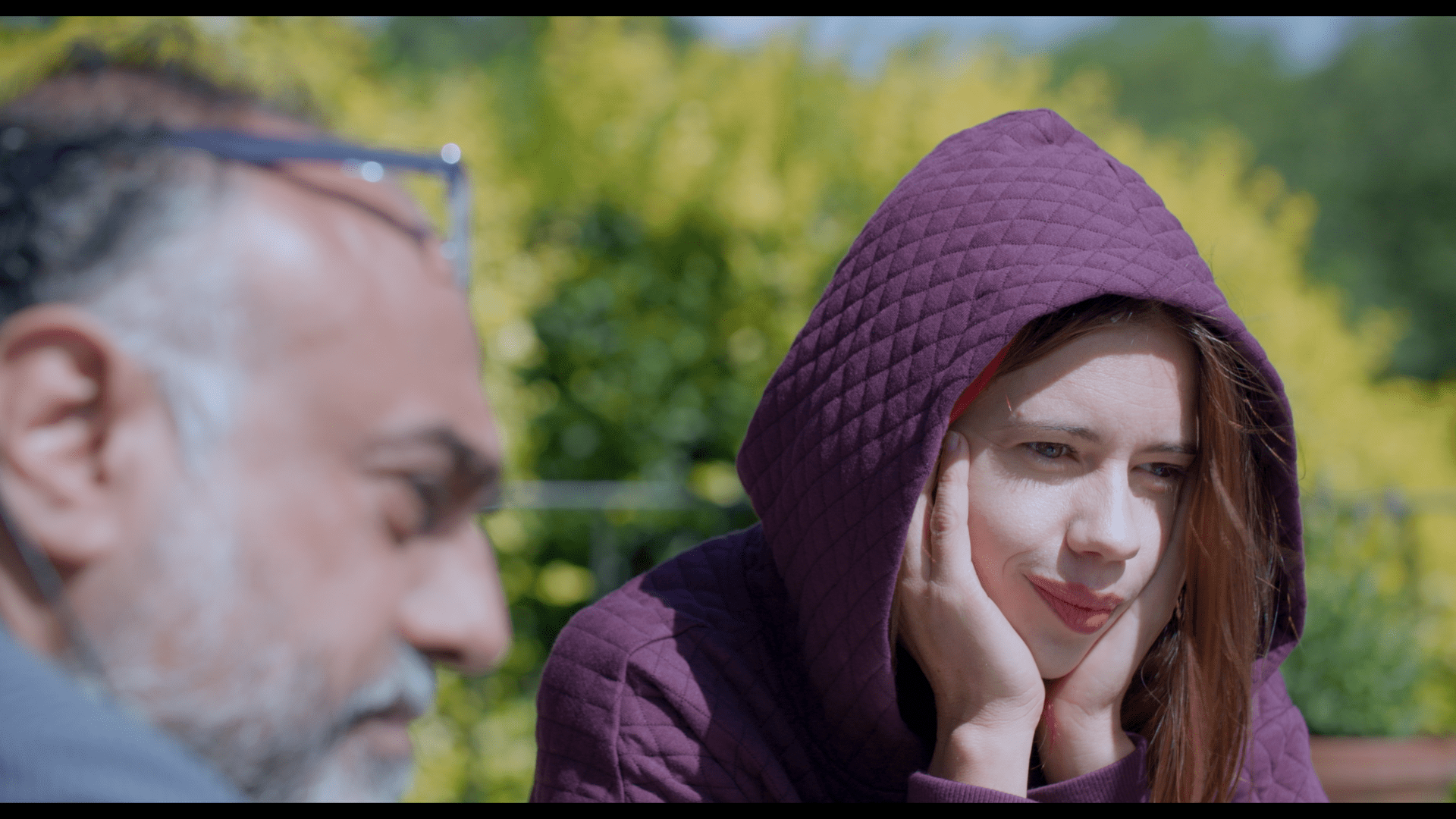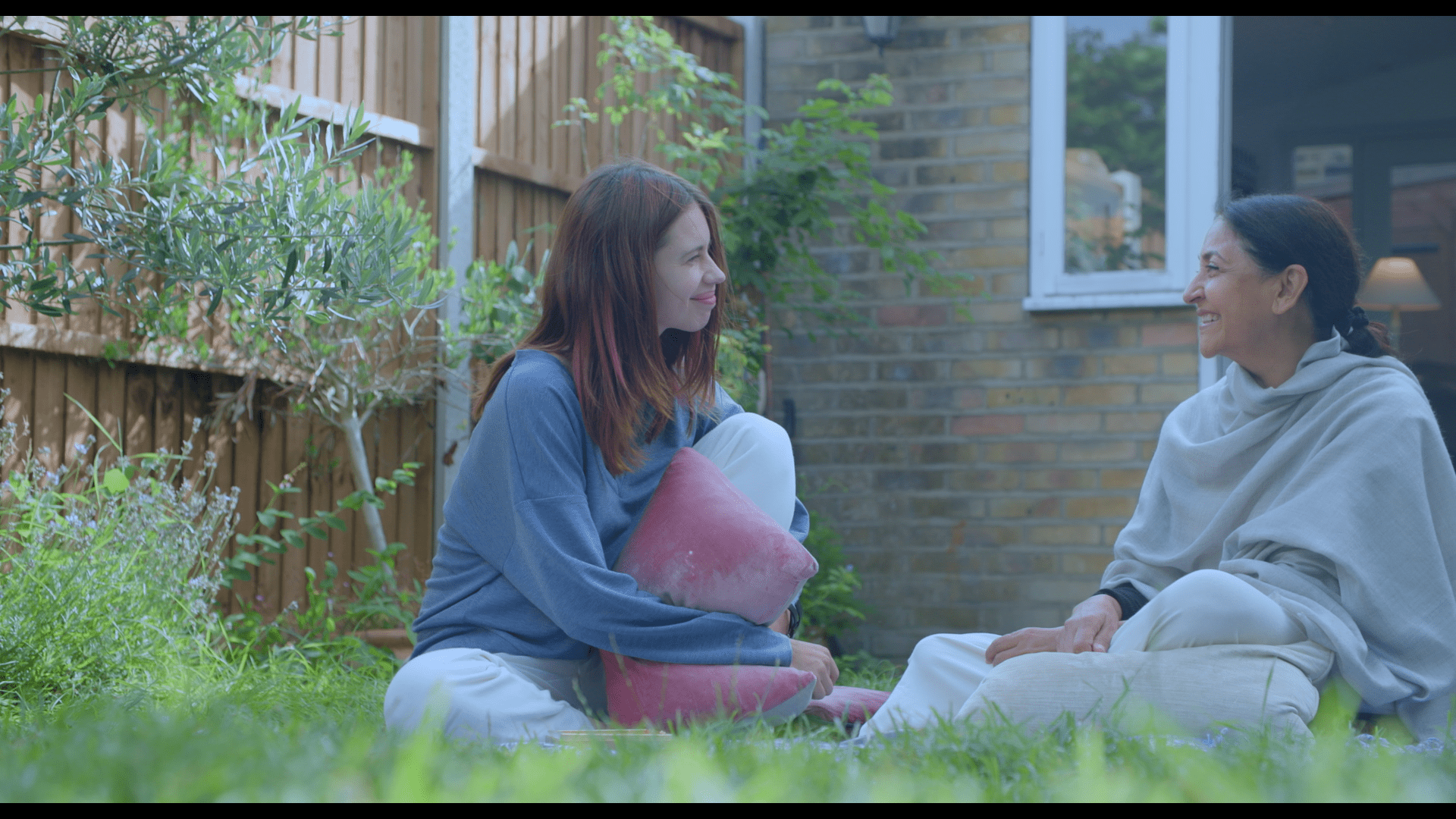By Athira Raj
Get ready for a cinematic masterpiece as ‘Goldfish’ brings Kalki Koechlin back to theatres after a 4-year hiatus. Directed by Pushan Kripalani, the film stars a stellar cast including Deepti Naval, Rajit Kapur, and more. Set in London, it delicately unravels the poignant tale of a daughter’s bond with her dementia-stricken mother. Deepti Naval and Kalki share insights on their unique camaraderie and how motherhood shapes their script choices. With a September 1 release date, the anticipation for this heartwarming film is palpable.

Both of you have taken up strong, unconventional roles before, what made you say yes to this film particularly?
DN: I felt that this was a role that was far more layered and came from a deeper level. Somehow I felt that I could go deeper into the psyche of this woman rather than playing something that is story-led. The character in the movie is more Psychologically driven and I am always interested in roles that are psychologically complex. There are not many roles like that going around and here was one that intrigued me to take it up. When I heard about this subject, I immediately felt that this was a film I wanted to belong to.
K: Pushan. I had seen his first film and loved his writing and sense of intimate storytelling.
What intrigued you most about the story?
K: We don’t see older women as main protagonists often in films, I loved that this had hardly any romantic notions, it focused on mother-daughter, and life has so many other important stories to tell than just romantic love.
DN: The estranged relationship between mother and daughter intrigued me the most because, in real life, I was close to my mother, though she suffered from dementia. We were very very close but on screen, here is an estranged relationship. So I thought that this is something new and would like to explore this area- what if between the two of them is this unease, then where do you go from here? So there was more for me to explore as an actor. So then my own equation with my own mother- so that was one point of intrigue.

How did you prepare for this role?
DN: My preparation for this role is not an overtly outward physical preparation. It’s mostly internal. The way I prepare for a role is that once I have read the script, it stays in my head. I am 24X7 thinking about the character and it is taking shape and form in my mind. I am thinking of the different situations of how this woman will react. My rehearsals are very internal because most of my rehearsing pattern is thinking deeply about the character and staying with it. Once I have read a character, I like to stay with it and that is my preparation for the role.
K: Worked on a British, Oxford accent and mainly tried to handle my baby in between work!
The Goldfish trailer shows that there are going to be heavy, emotionally intense scenes in the film, how did you manage the mental toll such scenes can have on an actor?
K: Over the years I’ve learnt to counter the heaviness with light activities on my break time or my day off, so I am not consumed by the role and can keep my health in check.
DN: Yes Goldfish is full of intense emotions, very sensitive emotional scenes but not dramatically emotional. It’s subtle and intense and I have always Picked roles that conflict with strong women so that there is always conflict going on inside the women’s head. So it was another perspective from a mother’s P.O.V. It is what a mother feels about the daughter’s presence and that unease. Within that unease, every time we conflict, we come closer to each other. That is the way I read things in the script and I guess this is an area that I handle pretty well.

How did you channel your own experiences of motherhood and your relationships with your mothers into this film that navigates a fraught mother-daughter relationship?
DN: When I say I had a very close, intense and intimate relationship with my mother, we bonded strongly. That doesn’t mean I didn’t go through phases where we conflicted.
It was not always hunky dory between me and my mother. And then came a time when we were one. One soul, two bodies because I drew a lot of my experiences from my mother. I didn’t have to emulate my mother in any way. I still had to imagine what my character Sadhana from the film Goldfish would be like. I didn’t play my mother in this film but I will someday.
K: All I know is being a mother made me much more empathetic towards Deepti’s character, that the work is hard for every mother and usually she is trying her best. As a daughter, you cannot really understand that until you have a child of your own.
Many actresses start working less or stop working altogether after they get married or have kids. How did you manage your personal and professional lives?
K: I do work less. It’s not always easy making the choices, but I have to make the choice to be happy. That’s what will really reflect on our children.
DN: I have been single most of my life though Prakash and I were married for a while and we have an adopted child i.e. our daughter Disha. I have never had a problem with balancing my role with Disha as a mother to her and my working life. Whenever Disha has had any crisis in her life, I have dropped everything and come by her side and that’s the way I will keep it.
Sometimes we go through major traumas because there is a parent who needs us. With my father, sometimes they need us and a project would come to bring us hurtling back to India and I can’t be with my parents in the US. I came back to India because I can’t get out of my commitment and I can’t afford to allow the producer to lose big money because one of the cast Deepti Naval has other priorities and she wants to look after her parents. Sometimes we are the losers there and it’s very painful. It’s a hard fact we learn to live. So regret for those times would be never-ending.

Goldfish is a women-centric film written and directed by two men. Do you think it changes the nuances of the film?
DN: I have not felt it for Goldfish, written by two highly sensitive men, Arghya Lahiri and Pushan Kripalani and I am very happy to be working with these two young people. They didn’t let me feel the absence of a woman’s touch, a woman’s mind or a woman’s heart.
K: Perhaps it does. We definitely had questions and arguments during the script level, but Pushan comes from theatre and that means rehearsals, readings and changing lines or ideas, allowing for the others in the room to bring perspective, and I think Deepti ji, or Bhavna Patel or myself could bring perspectives out that the boys may not have thought of.
Tell us about your upcoming projects.
K: I have Kho Gaye Hum Kahan coming out sometime at the end of this year. And I’m happy to be basking in releases for the moment.
DN: Following my book and film release, my immediate upcoming project is that I want to take off for the Atlanta Film Festival after September. Subsequently, my next venture will involve writing another book, alongside my engagement in reading two to three scripts. Let’s see which one works out first.


